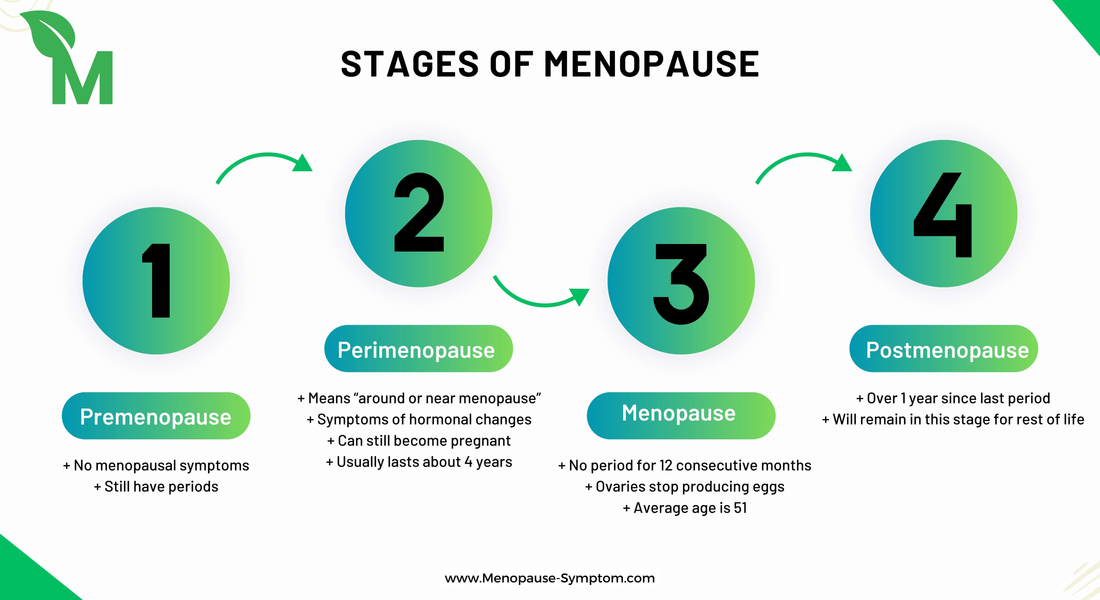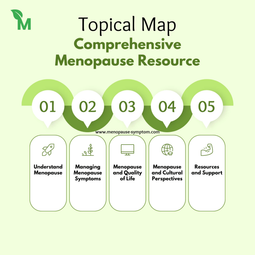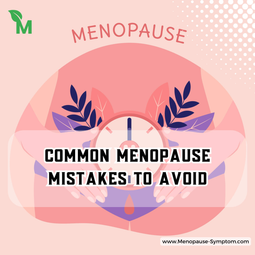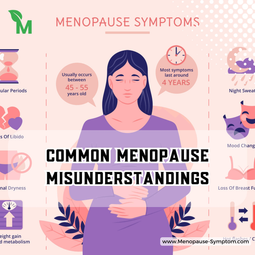Understanding The Stages And Challenges Of Menopause
On
24/10/2024Reading time:
1 min
Summary:
Menopause is a natural stage in a woman's life that marks the end of her reproductive years. It's a time of hormonal changes that can bring about various physical and emotional symptoms. Understanding the stages of menopause can help women better prepare for and manage these changes.

The stages of menopause include:
Premenopause: This is the period before menopause begins. Women may experience irregular periods or other mild symptoms.
Perimenopause: This is the transition period leading up to menopause. Women may experience more noticeable symptoms, such as hot flashes, night sweats, mood swings, and sleep disturbances.
Menopause: This is the point at which a woman has not had a menstrual period for 12 consecutive months.
Postmenopause: This is the period after menopause. Women may continue to experience some menopausal symptoms, but they generally become less severe.
Hormones play a crucial role in menopause. As estrogen levels decline, women may experience a range of symptoms. These symptoms can include:
Hot flashes and night sweats
Vaginal dryness
Sleep problems
Mood changes
Weight gain
Thinning hair
Loss of bone density
While menopause can be a challenging time, there are many ways to manage its symptoms and improve overall quality of life. These may include lifestyle changes, hormone therapy, or other medical treatments.
Hormonal Changes During Menopause
Menopause is a natural process that occurs in women as they age. It's marked by a decline in estrogen and progesterone, two key hormones that regulate the menstrual cycle and other bodily functions.
Here's a breakdown of the hormonal changes that occur during menopause:
Follicle-stimulating hormone (FSH) and luteinizing hormone (LH): These hormones are produced by the pituitary gland to stimulate the ovaries. As estrogen levels decline, FSH and LH levels increase in an attempt to stimulate the ovaries to produce more estrogen. However, the ovaries eventually stop responding to these hormones.
Estrogen: Estrogen is produced by the ovaries and is responsible for a variety of functions, including regulating the menstrual cycle, maintaining bone density, and protecting against heart disease. As estrogen levels decline during menopause, women may experience a range of symptoms, such as hot flashes, night sweats, vaginal dryness, and mood changes.
Progesterone: Progesterone is another hormone produced by the ovaries. It helps to prepare the uterus for pregnancy. As estrogen levels decline, progesterone levels also decrease. This can lead to irregular bleeding or spotting between periods.
It's important to note that the rate at which these hormonal changes occur can vary from woman to woman. Some women may experience menopause symptoms more gradually than others.
Understanding these hormonal changes can help women better manage the symptoms of menopause and make informed decisions about their healthcare.
Challenges and Changes During Menopause
Menopause can bring about a range of physical and emotional challenges. Understanding these changes can help women better prepare for and manage them.
Some common challenges associated with menopause include:
Urinary tract infections (UTIs): The thinning of the urethra and bladder lining can increase the risk of UTIs.
Vaginal changes: Vaginal dryness, itching, burning, and pain can occur due to a decrease in estrogen.
Neurological challenges: Mood swings, memory loss, depression, and anxiety can be associated with menopause.
Hot flashes and night sweats: These are common symptoms caused by hormonal fluctuations.
Joint pain: Low estrogen levels can contribute to joint pain.
Weight gain: Hormonal changes and metabolic shifts can make it easier to gain weight during menopause.
Thyroid problems: Menopause can sometimes coincide with thyroid dysfunction, leading to symptoms like fatigue, weight gain, and mood changes.
Blood sugar dysregulation: Hormonal changes can affect how the body responds to insulin, leading to fluctuations in blood sugar levels.
If you're experiencing any of these symptoms, it's important to talk to your healthcare provider. They can help you manage these challenges and improve your quality of life during menopause.
Source: Team MPS compiled, analyzed and wrote. Please dont reup without source of us. Many thanks.




